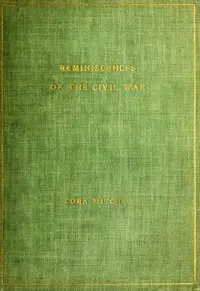"The Influence of Sea Power Upon History, 1660-1783" by A. T. Mahan is a historical account written during the late 19th century. The work analyzes the consequences and significance of naval power in shaping geopolitical dynamics and determining the outcomes of conflicts between nations. Mahan argues that sea power has played a crucial role in the historical events from the end of the 17th century until the American Revolutionary War, highlighting how control of the sea can influence a nation's prosperity and security. The opening of the text sets the stage for Mahan's inquiry into the historical interplay between sea power and national fortunes. He notes the tendency of historians to overlook the vital importance of maritime strength, emphasizing that this work aims to rectify that by examining specific historical instances where this influence was paramount. Mahan outlines the interconnectedness of sea commerce, naval policy, and military strategy, suggesting that a nation’s ability to project power at sea directly affects its success and stability. He emphasizes both the lessons learned from past naval engagements and the potential applications of those lessons to contemporary geopolitical conditions. (This is an automatically generated summary.)

The Influence of Sea Power Upon History, 1660-1783
By A. T. (Alfred Thayer) Mahan
"The Influence of Sea Power Upon History, 1660-1783" by A. T. Mahan is a historical account written during the late 19th century. The work analyzes th...
Alfred Thayer Mahan was a United States naval officer and historian, whom John Keegan called "the most important American strategist of the nineteenth century." His 1890 book The Influence of Sea Power Upon History, 1660–1783 won immediate recognition, especially in Europe, and with the publication of its 1892 successor, The Influence of Sea Power Upon the French Revolution and Empire, 1793–1812, he affirmed his status as a globally-known and regarded military strategist, historian, and theorist. Mahan's works encouraged the development of large capital ships — eventually leading to dreadnought battleships — as he was an advocate of the 'decisive battle' and of naval blockades. Critics, however, charged him with failing to adequately explain the rise of largely land-based empires, such as the German or Ottoman Empires, though Mahan did accurately predict both empires' defeats in World War I. Mahan directly influenced the dominant interwar period and World War II-era Japanese naval doctrine of the "decisive battle doctrine" , and he became a "household name" in Germany. He also promoted American control over Hawaii though he was "lukewarm" in regards to American imperialism in general. Four U.S. Navy ships have borne his name, as well as various buildings and roads; and his works are still read, discussed, and debated in military, historical, and scholarly circles.


















